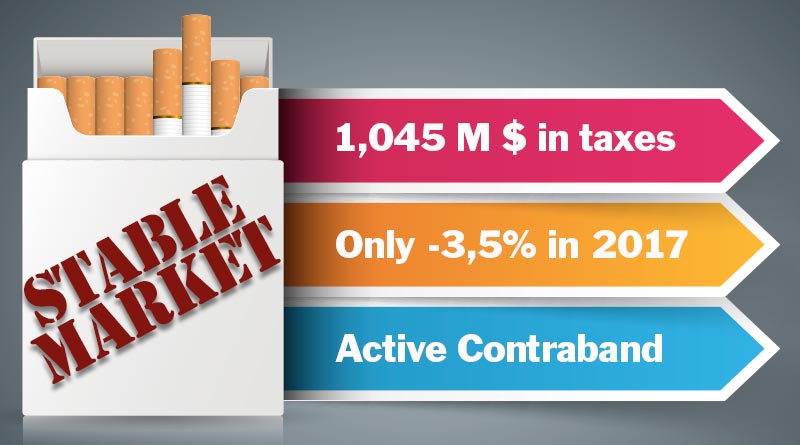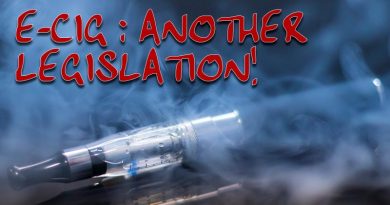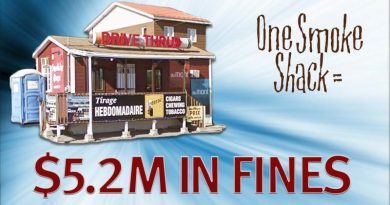Two Years After The Passage Of Tougher Smoking Laws in Quebec, It’s Business As Usual
If one of the main goals of the tobacco Act review in 2015 was to reduce smoking, then we can conclude that two years later, it hasn’t been a huge success.
Indeed, as this week marks the second anniversary of the passage of Bill 44, the most recent statistics from the Quebec Finance Department contained in the 2016-2017 Public Accounts report unveiled this month confirm that tax revenues on tobacco remained stable over the past year.
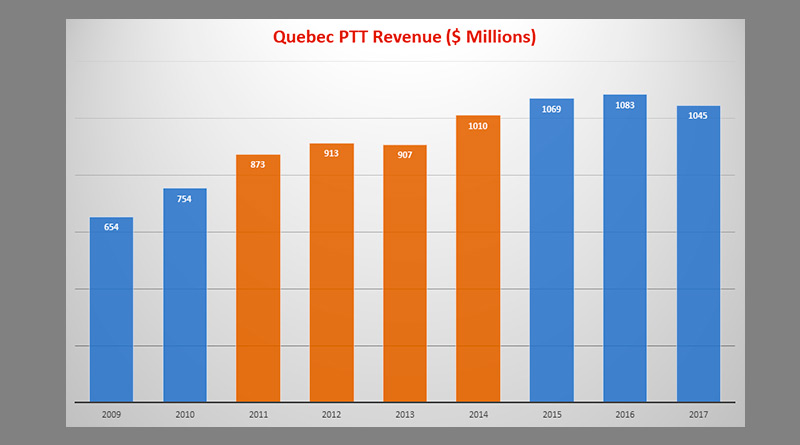
Although 2017 is the first full year under the new revised law, sales were down only 3.5%, or $ 38 million, from the previous year, and just 2.2%, or 24 million, compared to 2015.
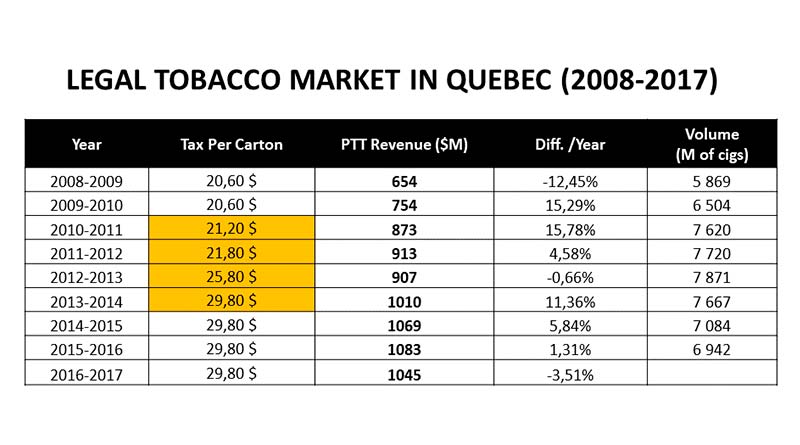
Moreover, this small decrease of 3.5% in legal tobacco sales could be very well caused by an increase in contraband.
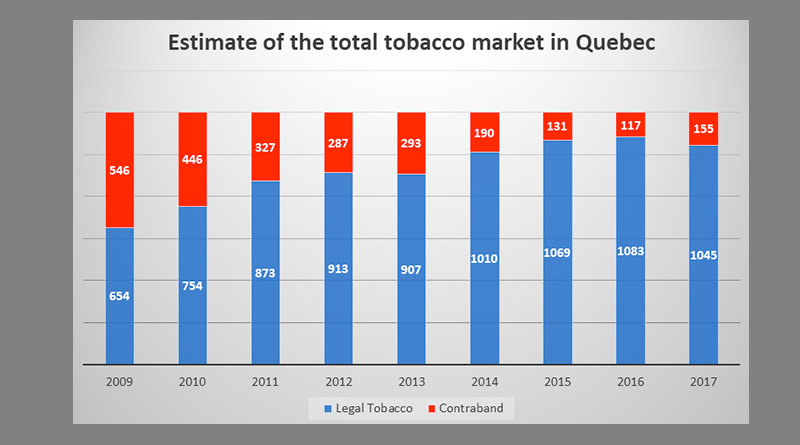
There are reasons to suspect that contraband is behind the recent tiny drop in legal sales and NOT the reduction in smoking.
Indeed, just in recent weeks, a series of spectacular arrests and seizures have come to recall the illicit market incredible resilience:
- Nov 23, 2017: More than 2,750 kilograms of contraband tobacco seized in the region (source: Journal St-François);
- Nov. 23, 2017: Seizure of 20,000 cigarettes (source: Express de Drummondville);
- Nov. 22, 2017: Seizure of 98,400 contraband cigarettes in La Baie (Source: The Daily, 15);
- Nov. 13, 2017: Two youngsters from Les Cèdres arrested for contraband tobacco (source: Néomédia);
- Nov. 8, 2017: Contraventions of $ 850,000 for seven offenders (source: Revenu Québec);
- Nov 2, 2017: Two Quebecers arrested in Ontario with 65 garbage bags containing 1161 kg of cut tobacco (source: Journal de Montréal)
There are just simply too much news of this type to report them all here, all across Quebec.
Such persistence is not at all surprising as a contraband tobacco carton now costs ten times less than a legal one ($ 10 vs. $ 100).
So, as the industry has been saying to the government for years, it is a priority to tackle contraband tobacco first and foremost, starting with an end to the massive selling of contraband to non-native on the Kahnawake and Kanesetake Native reserves, where amateurs smugglers supply on of 50-carton cases at $ 400 apiece (one case = 10,000 cigarettes) to be resold in their region at three times the price.
This would not only increase tax revenues, but would also reduce smoking by forcing everyone to pay the excessive price that is currently charged and keeps the black market alive.

